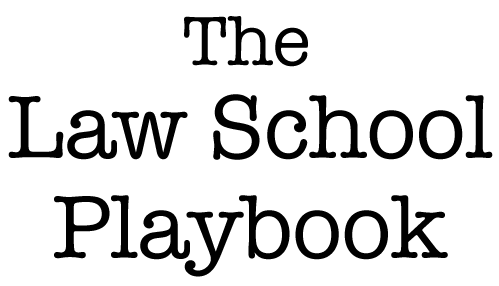Dear Student,
Welcome to The Law School Playbook! I’m Halle Hara, a professor of academic success and personal skills coach to law students and attorneys. I’m glad you’re here! The law school experience is so focused on reading and interpreting appellate cases that students sometimes overlook the central role that legislation plays in practice. The reading and interpretation strategies in this series of episodes pertains to many kinds of enacted law (or requirements with the force of enacted law), such as statutes, regulations, ordinances, and municipal law. For ease of reference, however, I will refer to the coaching strategies in this series as reading and interpreting statutes.
Many of the strategies used for reading cases also apply to reading statutes. If you remember, those suggestions included:
rethinking your screen-reading habits to be a more engaged reader
finding your inner purpose for inspired, active reading
reading with energy to foster meaningful learning
finding your inner actor to role play as you read
reading with your common sense, life experiences, and prior knowledge in mind
formulating opinions as you read, and
engaging in a dialogue with yourself for a deeper understanding
There is one rule we will change and that’s speed reading, but we’ll talk more about that in the next episode.
For now, as we begin to focus on this topic, I want you to think of the sheer number of statutes that impact your daily life. Regardless of how you feel about the number—whether you believe it to be a “good” or a “bad” thing—there is no denying the presence of statutes in our lives.
A somewhat extreme example appeared in a Washington Post article, which stated: “it may be surprising to learn that in many cities and municipalities, lemonade stands aren’t supposed to set up shop on public sidewalks or roads without a permit, which often come with applications and fees.” Just google the topic and you’ll find many stories from across the nation that involve police shutting down lemonade stands and imposing a fine due to a failure to follow the law.
Most Americans are familiar with workplace laws, tax laws, and criminal laws and often learn of others in the news, like a law that bans the manufacture or sale of common household incandescent bulbs and a national policy removing partially hydrogenated oils from processed foods. The Internet is replete with lists of “weird” laws like Little Rock’s ordinance governing the “sounding of horns at sandwich shops,” which provides that “[n]o person shall sound the horn on a vehicle at any place where cold drinks or sandwiches are served after 9:00 p.m.” From bingo games to fantasy football, there is no shortage of written laws that impact our daily lives. This is all to say that the skill of reading and interpreting statutes will be required of you no matter your practice area, so let’s do this.
If would you like to read this episode, get suggestions for further reading, or to request individual coaching with me, please visit my website at www.lawschoolplaybook.com.
As always, do your best, and I’ll be rooting for you!
References and Further Reading
Jane Bloom Grisé, Critical Reading for Success in Law School and Beyond 238–239 (2017).
Ruth Ann McKinney, Reading Like a Lawyer: Time-Saving Strategies for Reading Law Like an Expert 219–233 (2d ed. 2012).
David S. Romantz & Kathleen Elliott Vinson, Legal Analysis: The Fundamental Skill 4 (2d ed. 2009).
Michael Hunter Schwartz, Expert Learning for Law Students 85–87 (2d ed. 2008).
Rachel Siegel, Bullies were shutting down America’s lemonade stands. These lawyers work for big lemonade, The Washington Post (June 12, 2018). https://www.washingtonpost.com/news/business/wp/2018/06/12/bullies-were-shutting-down-americas-lemonade-stands-these-lawyers-work-for-big-lemonade/?utm_term=.508ce7da665e.
TheAllstateBlog, Unusual Traffic Laws in the United States (Nov. 20, 2012). https://www.allstate.com/blog/unusual-traffic-laws-in-the-united-states/.
Maryanne Wolf, Reader, Come Home: The Reading Brain in a Digital World 76–78 (2018).
